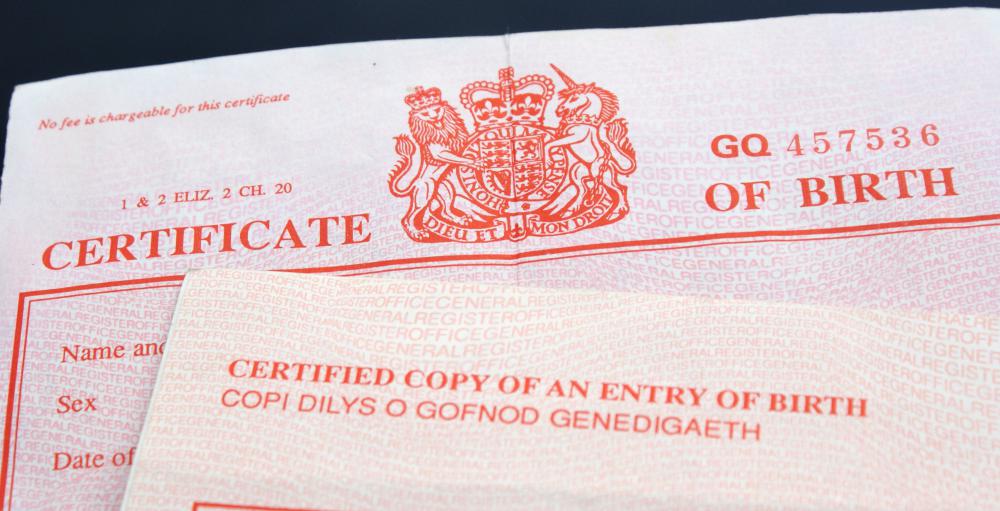At WiseGEEK, we're committed to delivering accurate, trustworthy information. Our expert-authored content is rigorously fact-checked and sourced from credible authorities. Discover how we uphold the highest standards in providing you with reliable knowledge.
What is a Declaration of Paternity?
A declaration of paternity, also known as an affidavit of paternity, is a document that is typically signed by unmarried parents after a child is born. The document establishes the man as the father of the child, with all the legal rights and responsibilities given to unmarried fathers under the area's laws. A declaration of paternity can be used to establish a father's rights to contest adoption proceedings, or to establish his child's right to ongoing child support. It is also a good way to protect a child's rights to Social Security benefits and inheritance rights in case of the father's death.
In many countries, a woman's husband is assumed to be the legal father of any children born during their marriage or within a certain time period after his death or the couple's divorce. However, if a woman is unmarried when she gives birth or the father of her child is a man other than her husband, the law typically requires specific steps to establish the identity of that child's legal father. In the United States, paternity law varies by states, with many states using the declaration of paternity as a way of avoiding costly and complicated legal processes to determine a child's legal father. Signing a declaration of paternity is typically a voluntary act. In some states, if a man does not want to acknowledge that he is the father or the mother or her husband do not wish to participate in its signing, a paternity case may need to go to court.

Upon signing a paternity affidavit, a man is generally considered to be the child's father and may be responsible for paying child support, though some states provide for a brief revocation period after its signing. For this reason, it is a good idea for unmarried parents to verify whether the man is in fact the father of the child to avoid a situation in which a man is responsible for supporting a child who is not biologically his. On the other hand, there are advantages in some states to completing the declaration of paternity before mother and baby leave the hospital, as the father's name may be placed directly on the birth certificate. If the child's parents wait to confirm paternity before signing the declaration of paternity, they may have to file a form to amend the birth certificate at a later date.
AS FEATURED ON:
AS FEATURED ON:













Discuss this Article
Post your comments